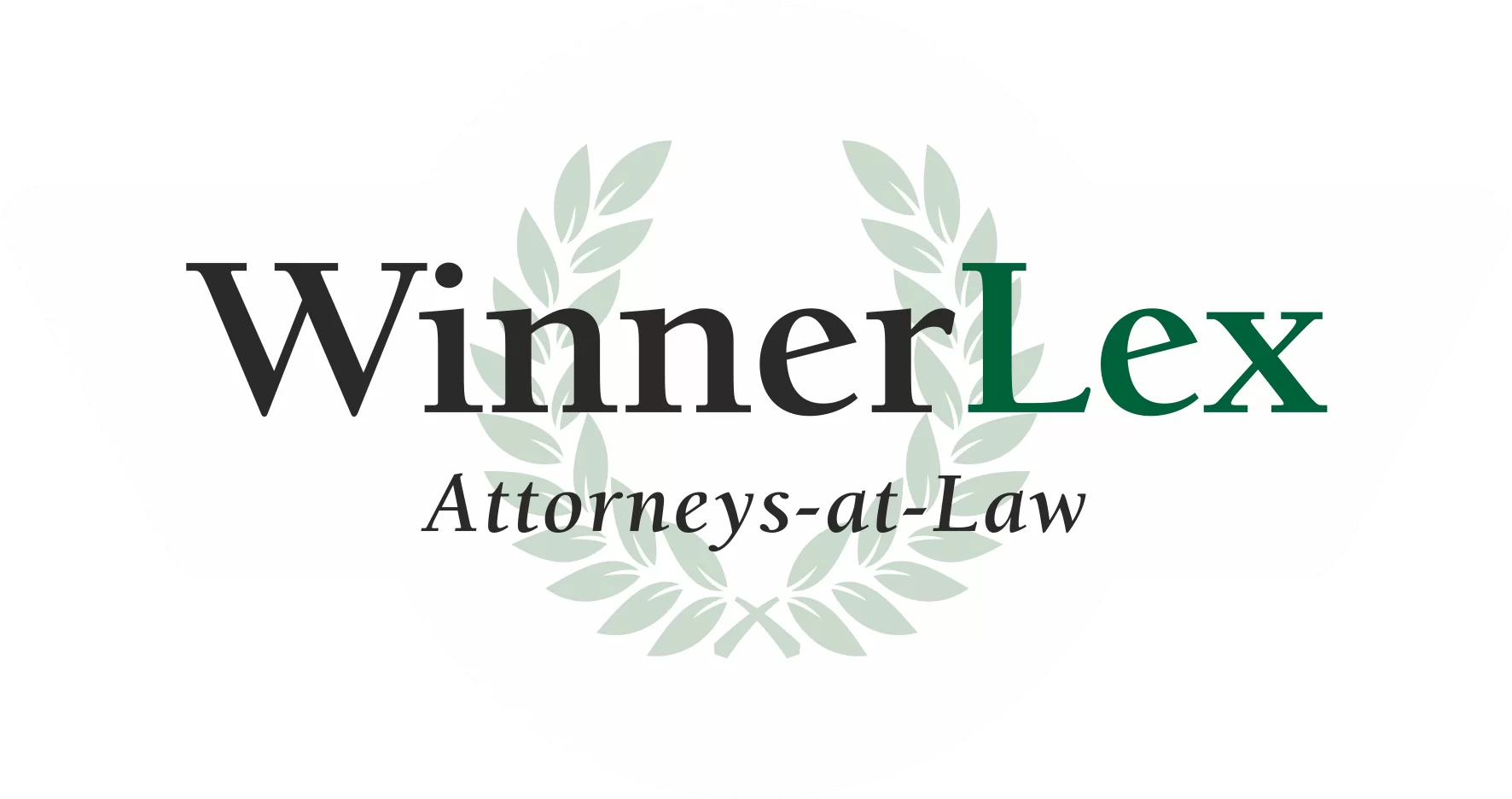Debt collection from legal entities is one of the most common types of commercial litigation. The presence of overdue accounts receivable negatively affects the financial state and operations of any business. Therefore, handling the collection of debts from counterparties is vital for every enterprise.
From a legal perspective, the grounds for debt collection arise from the failure or improper performance of the debtor’s contractual obligations. Usually, these obligations involve payment for delivered goods, services rendered, or work completed. There may also be cases of debt collection for the return of an advance payment due to the debtor’s failure to fulfill their obligation to supply goods, perform work, or provide services.
In addition to collecting debt from legal entities, debtors may also be required to pay penalties if stipulated in the contract. Furthermore, in accordance with civil law provisions, 3% annual interest on the debt amount and inflationary losses (for debts in national currency UAH) are subject to collection.
The debt collection process can be divided into three stages: pre-trial settlement, court proceedings, and enforcement of the court decision on debt recovery.
Pre-trial settlement involves sending a claim to the debtor demanding that they properly fulfill their obligations. The debtor is also warned about the possibility of debt recovery through court if the obligation is not fulfilled.
Disputes between business entities, including debt recovery cases, are subject to consideration by commercial courts. Depending on the amount of the debt, the recovery process in a commercial court may occur through a writ or claim procedure.
A separate process can be highlighted for debt recovery from an enterprise undergoing bankruptcy proceedings. It depends on the timing of the debt arising—before or after the initiation of bankruptcy proceedings.
Additionally, the parties to the contract may agree to refer disputes between them, including debt recovery, to arbitration. In such cases, the debt recovery claim can only be resolved by a specific arbitration court.
It should be noted that all evidence of the debtor’s breach of obligations must be submitted to the court along with the claim. Evidence submitted later may only be accepted by the court under exceptional circumstances, when the claimant could not have provided it to the court for objective reasons. In the absence of all necessary evidence, the court may dismiss the claim for debt recovery.
When applying to the court for debt recovery, it is also possible to request the court to impose a lien on the debtor’s funds and property in order to secure the future enforcement of the court decision.
After the court decision becomes final, the debt recovery is carried out by the commercial court, which issues an order. This order serves as the basis for the compulsory enforcement of the decision and the recovery of the debt by a state or private executor. A request for the issuance of an order for the enforcement of a decision by an arbitration court is submitted to the appellate commercial court at the location of the arbitration proceedings.
The lawyers of WinnerLex successfully provide legal services for debt recovery. The professional experience and expert level of our lawyers allow us to effectively protect the interests of clients even in complex disputes.
During the pre-trial settlement, our lawyers conduct claim work with the debtor on behalf of the client, both in individual cases and on an ongoing basis as part of legal service.
For judicial debt recovery, we represent the interests of clients at any stage of consideration in commercial courts of all instances. We also represent clients during the enforcement proceedings for the compulsory execution of court decisions on debt recovery.
The presence of permanent offices in Kyiv and Dnipro allows our law firm to represent the interests of clients across the entire territory of Ukraine.
It is also important that the payment for legal services based on the agreement with the law firm ensures the possibility of recovering their cost from the debtor if the claim is satisfied.
THE SCOPE OF LEGAL ASSISTANCE IN DEBT RECOVERY FROM LEGAL ENTITIES INCLUDES:
- Conducting a legal analysis of the contract and primary documents for violations of contractual obligations.
- Searching for and analyzing case law on similar debt recovery disputes.
- Preparing and sending a claim to the debtor.
- Drafting, formatting, and submitting a claim to the court for debt recovery, including the calculation of penalties.
- Representing the client’s interests during the court hearing.
- Obtaining the enforcement document.
- Drafting and submitting an application for the initiation of enforcement proceedings to the State Enforcement Service or a private enforcement officer.
- Monitoring the execution of the enforcement proceedings.
At the contract stage, we advise ensuring the reliability of your business partner in advance. You can obtain data from state registers regarding ongoing legal disputes, unfinished enforcement proceedings, check if the legal entity is undergoing termination or bankruptcy proceedings, verify information about the manager and individuals authorized to sign contracts, and check if the company has any outstanding tax debts. This will help reduce the risks of delayed payments under the contract.
When concluding a contract, we recommend specifying exact payment terms in it. It is also advisable to stipulate a 100% advance payment for the cost of works, services, or goods to be supplied. In case the counterparty avoids fulfilling their payment obligations within the agreed terms, it is appropriate to include provisions in the contract regarding higher penalties, compared to those established by law, for late payment – such as fines, penalties, and annual interest.
A rather effective method of debt collection is to address the debtor with a corresponding written claim. In this case, there is no obligation to pay court fees or other costs associated with the case being heard in court. By sending a claim to the other party, it is possible to negotiate repayment of the debt on terms that will be favorable to both parties.
During the consideration of a case for the collection of funds in court, each party must prove the circumstances it refers to. Therefore, it is important to pay sufficient attention to the preparation of primary documents, ensuring they contain mandatory details, the positions and signatures of authorized persons, and to verify the existence of a document confirming such authorizations.
An integral stage of debt collection is the enforcement of the court decision. After the court’s decision has become legally binding, it is necessary to monitor the receipt of the enforcement document and promptly file a petition to open enforcement proceedings with the State Enforcement Service or a private bailiff.


The general statute of limitations for claims is 3 years. At the same time, it should be noted that the accrual of penalties stops 6 months after the obligation was due to be fulfilled.
In certain cases, the statute of limitations may be suspended or interrupted. The interruption of the statute of limitations may occur if the debtor takes an action that indicates the acknowledgment of the debt. Such actions may include acknowledging a claim, partial payment of the debt, or a written request for a deferral of payment. The statute of limitations will also be interrupted if the creditor files a lawsuit against one of several debtors or if a claim is filed requiring the payment of part of the debt. After an interruption, the statute of limitations period starts anew.
The suspension of the statute of limitations may occur, for example, in cases where the claim could not be filed due to force majeure or if the action of a regulatory legal act governing the relevant relations was suspended. The statute of limitations period is also suspended if the law provides for a deferral of the performance of certain obligations (moratorium).
As a general rule, a claim in a commercial case is filed with the court at the registered location of the defendant as per the Unified State Register of Legal Entities. The claimant has the right to choose which specific commercial court to file a claim for debt recovery against a counterparty in the following cases:
- If the claim involves multiple defendants – at the location of one of them;
- If the defendant is a branch or representative office of a legal entity – the claim can be filed either at the location of the branch/representative office or at the location of the legal entity;
- If the contract specifies a place of performance, the claim can also be filed in the court at the place of performance of the contract;
- If the debtor’s registration address is unknown – at the location of the defendant’s property or at the last known registered place of residence, stay, or permanent activity;
- If the debt arose due to the compensation for damage caused to property – the claim can also be filed at the place where the damage occurred;
- If the debtor does not have a location in Ukraine, the claim may be filed at the location of their property.
The case of debt recovery due to improper performance of a transportation contract is considered by the court at the location of the carrier.
An important stage in the debt recovery process from legal entities is the enforcement of the court’s decision. If the debtor does not voluntarily comply with the court’s decision to recover the debt, the claimant has the right to present the enforcement document for compulsory execution.
The order of the commercial court can be presented for compulsory execution within three years from the day following the date the court’s decision becomes final. The first-instance court that considered the debt recovery case may grant a delay or an installment for the execution of the decision. In this case, the period for presenting the order for execution is interrupted.
In the presence of valid reasons, the claimant may apply to the court that considered the debt recovery case in the first instance with a request to restore the period for presenting the order for execution.





